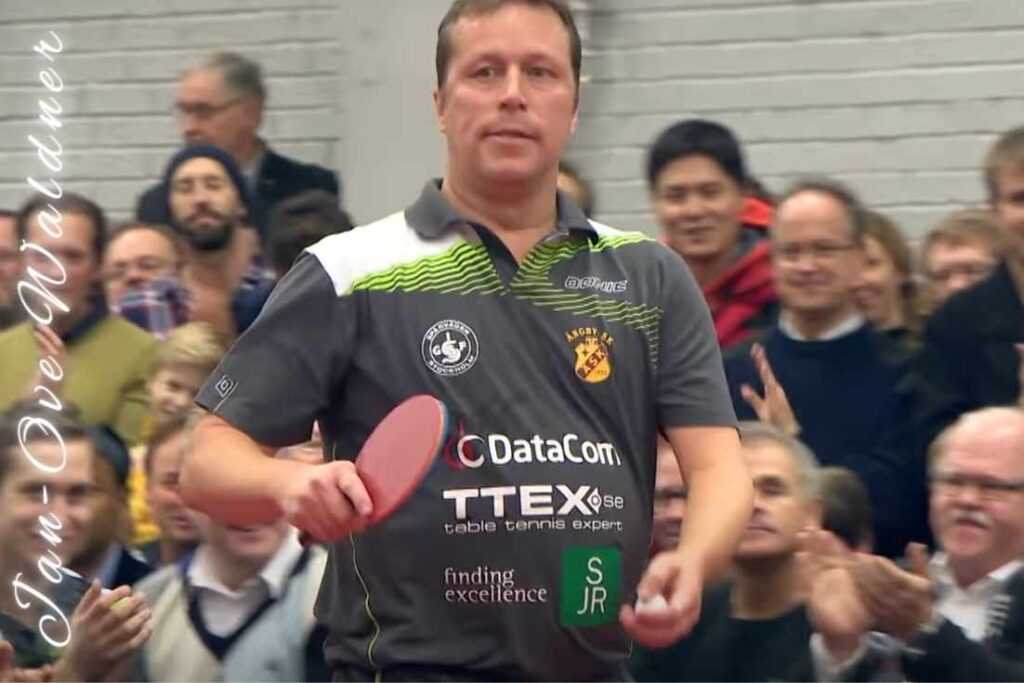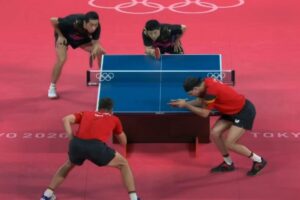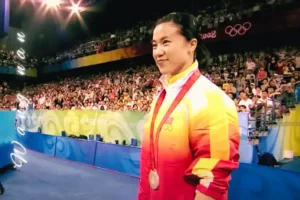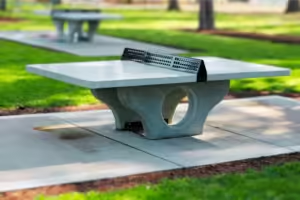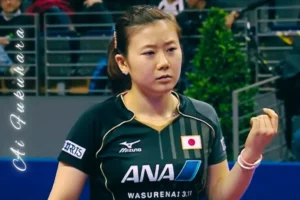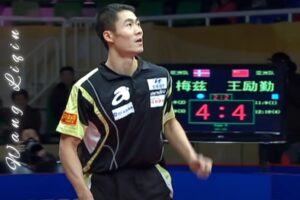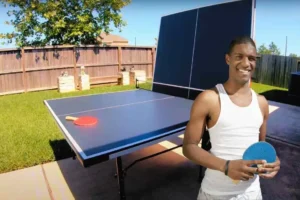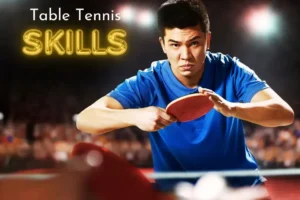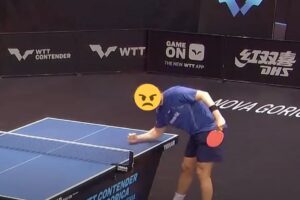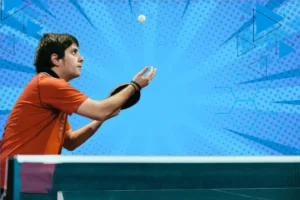Explore Jan-Ove Waldner’s table tennis mastery. Uncover the secrets behind his legendary career, major wins and unparalleled achievements in the world of ping pong.
Profile of Jan-Ove Waldner
Jan-Ove Waldner, known as “The Mozart of Table Tennis,” is a true legend in the sport. Born in Stockholm in 1965, he began playing at the age of 7 and quickly showcased his exceptional talent. Waldner’s career, spanning over three decades, is filled with remarkable achievements, including an Olympic gold medal and multiple World Championship titles.
His playing style, characterized by powerful shots, deceptive serves, and strategic brilliance, made him a dominant force in table tennis. Waldner, a celebrated Swedish table tennis player, has inspired countless athletes. Waldner’s influence extends beyond his titles; he played a pivotal role in popularizing table tennis globally, especially in China, where he is affectionately known as “Lǎo Wā” (Old Waldner). His dedication, skill, and mental toughness have inspired generations of players, solidifying his legacy as one of the greatest in the sport’s history.
See More : Deng Yaping: The Queen of Table Tennis.
Early Life and Career Beginnings
Waldner began playing table tennis at the age of 7, showing prodigious talent early on. His early training was rigorous, focusing on developing a strong technical foundation. He joined the Ängby SK club, where he honed his skills under the guidance of experienced coaches. By the age of 16, Waldner had already made a mark on the international scene, signaling the arrival of a future star in the sport.
Major Wins and Tournaments
Waldner’s illustrious career is marked by numerous prestigious titles and accomplishments. His major wins include:
| Year | Tournament | Achievement |
|---|---|---|
| 1982 | European Championships (Budapest, Hungary) | Bronze Medal (Men’s Singles) |
| 1983 | European Championships (Budapest, Hungary) | Gold Medal (Men’s Team) |
| 1989 | World Championships (Dortmund, Germany) | Silver Medal (Men’s Singles) |
| 1990 | European Championships (Gothenburg, Sweden) | Gold Medal (Men’s Singles) |
| 1991 | World Championships (Chiba, Japan) | Silver Medal (Men’s Singles) |
| 1992 | Olympic Games (Barcelona, Spain) | Gold Medal (Men’s Singles) |
| 1993 | World Championships (Gothenburg, Sweden) | Gold Medal (Men’s Singles) |
| 1996 | Olympic Games (Atlanta, USA) | Silver Medal (Men’s Singles) |
| 1996 | World Cup (Nimes, France) | Gold Medal (Men’s Singles) |
| 1997 | World Championships (Manchester, UK) | Bronze Medal (Men’s Singles) |
| 2000 | European Championships (Bremen, Germany) | Gold Medal (Men’s Team) |
| 2000 | Olympic Games (Sydney, Australia) | Quarterfinalist (Men’s Singles) |
| 2002 | European Championships (Zagreb, Croatia) | Gold Medal (Men’s Singles) |
| 2004 | Olympic Games (Athens, Greece) | Quarterfinalist (Men’s Singles) |
| 2004 | European Championships (Copenhagen, Denmark) | Gold Medal (Men’s Team) |
Jan-Ove Waldner’s career is marked by exceptional consistency and longevity, as he competed at the highest levels for over two decades. His achievements in both the World Championships and the Olympic Games have cemented his legacy as a table tennis legend.
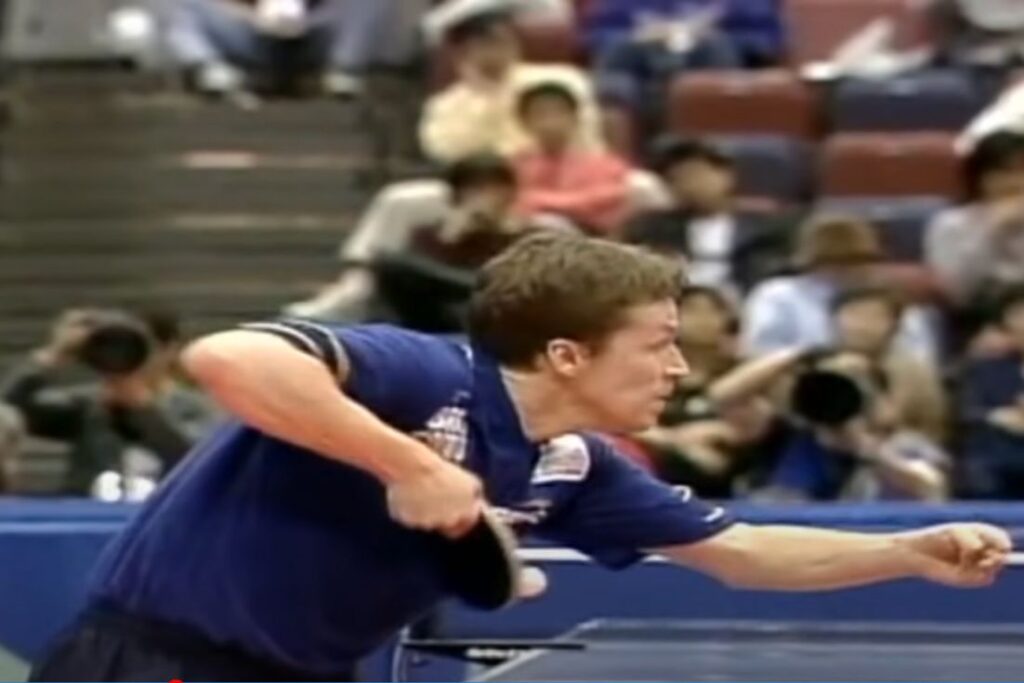
Playing Style and Techniques
Waldner is renowned for his versatile and strategic playing style, often compared to his compatriot, the Swedish table tennis player Jörgen Persson, for their contributions to the sport. His techniques include:
- Forehand and Backhand Mastery: Waldner’s ability to execute powerful and precise shots from both sides made him a formidable table tennis player, admired for his versatility and consistency in the game. His forehand loop was particularly feared for its speed and spin.
- Deceptive Serves: Waldner developed a wide array of serves that were difficult for opponents to read, often setting him up for an advantageous position early in the rally.
- Strategic Play: Known for his exceptional game sense, Waldner could adapt his strategy mid-game, exploiting his opponents’ weaknesses. This adaptability was evident in the 1988 and 2012 Table Tennis Championships, highlighting his long career. His understanding of spin and placement allowed him to control the pace and direction of the match.
- Mental Toughness: Waldner’s mental fortitude was one of his greatest assets. He remained calm under pressure, often performing his best in high-stakes situations, a trait that became legendary at the 1988 Table Tennis Championships where his mental toughness was on full display.
Historical Impact
Waldner’s influence on table tennis extends beyond his impressive list of titles. He played a crucial role in popularizing the sport globally, especially in Europe and China. His technical and strategic innovations have left a lasting legacy, inspiring future generations of players. Waldner’s matches against top Chinese players are particularly legendary, showcasing his skill and sportsmanship.
In China, Waldner is affectionately known as “Lǎo Wā” (Old Waldner). His popularity in China is a testament to his impact on the sport and his ability to bridge cultural gaps through his exceptional play. Videos of his matches are widely watched by table tennis enthusiasts and aspirants.
Training Regimens
Waldner’s success was built on rigorous training and dedication. His training regimen included:
- Technical Drills: Focused extensively on refining his shots, ensuring precision and consistency. Waldner spent countless hours practicing his serves, forehand, and backhand shots, perfecting each aspect of his game.
- Serve Practice: Developed a wide array of serves to enhance his unpredictability. Waldner’s serves were a key component of his strategy, often giving him an early advantage in rallies.
- Physical Conditioning: Maintained peak physical fitness to ensure agility and endurance during matches. His fitness routine included cardiovascular training, strength training, and flexibility exercises.
- Mental Preparation: Emphasized mental toughness and strategic planning to outthink his opponents. Waldner worked with sports psychologists to develop techniques for staying focused and managing pressure during matches. This approach contributed significantly to his being a dominant table tennis player across multiple decades.
Personal Anecdotes and Stories
One of the most remarkable aspects of Waldner’s career is his popularity in China, a country with a rich table tennis heritage. Despite being a foreign player, Waldner earned immense respect and admiration in China, where he is affectionately known as “Lǎo Wā” (Old Waldner). His matches against top Chinese players are legendary, showcasing his skill and sportsmanship.
In one memorable anecdote, Waldner was playing against a top Chinese player in a crucial match. Despite the intense pressure, Waldner remained calm and composed, executing a series of brilliant shots to secure the victory. This match is still talked about today, highlighting Waldner’s ability to perform under pressure and his strategic brilliance.
Interviews and Quotes
Waldner’s interviews often reflect his passion for the game and his analytical approach. A notable quote from him is, “Table tennis is like an intricate chess game, and every point is a new challenge.” This highlights his view of the sport as a mental and physical battle, requiring constant adaptation and strategy.
In another interview, Waldner discussed his approach to training and preparation. He emphasized the importance of consistency and dedication, stating, “To be the best, you have to put in the hours. There are no shortcuts.”
Comparative Analyses
Waldner is often compared to other table tennis greats, such as Ma Long and Zhang Jike, for his technical prowess and longevity. His ability to remain competitive over multiple decades sets him apart, demonstrating his adaptability and sustained excellence.
Comparing Waldner to Ma Long, both players have an exceptional understanding of the game and a diverse set of skills. However, Waldner’s career longevity and his ability to remain at the top of the sport for such an extended period are particularly noteworthy.
Evolution of the Game
Waldner significantly influenced the evolution of table tennis, particularly in the areas of serve technique and strategic play. His impact is notably recorded in the annals of Table Tennis Championships history. His innovations pushed other players to elevate their game, contributing to the overall advancement of the sport.
Before Waldner, the sport was more focused on power and speed. Waldner introduced a more nuanced approach, emphasizing spin, placement, and strategic planning. His influence can be seen in the way modern players approach the game, with a greater emphasis on strategy and technique.
Fun Facts and Trivia
Nickname: Apart from “The Mozart of Table Tennis,” Waldner is also called “The Evergreen Tree” due to his long-lasting career.
Legacy: Waldner is frequently invited to major table tennis events as a guest of honor, reflecting his enduring influence on the sport.
Cultural Icon: In China, Waldner’s popularity rivals that of local table tennis heroes. He has appeared in numerous advertisements and even had a television drama made about his life.
Versatile Athlete: Waldner is also known for his versatility in other sports. He is an accomplished golfer and has participated in several celebrity golf tournaments.
Conclusion
Jan-Ove Waldner’s career is a testament to the heights that can be achieved through dedication, skill, and strategic brilliance. His impact on the sport of table tennis is immeasurable, influencing not only his contemporaries but also future generations of players. Waldner’s legacy as “The Mozart of Table Tennis” is well-deserved, highlighting his contributions to the sport’s evolution and his role in popularizing table tennis globally. His story is one of passion, perseverance, and an unyielding quest for excellence, making him a true legend in the world of sports.
